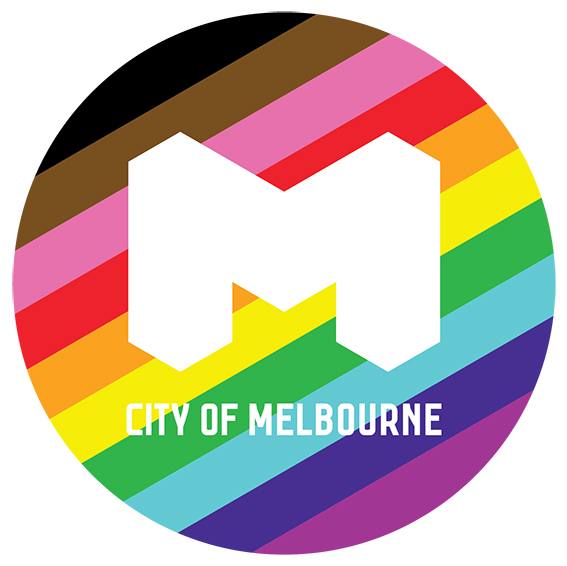New Balance - by Christopher Bryant
This written piece was commissioned by Midsumma in April 2020 as a response to the mass loss of the Melbourne queer arts industry (due to COVID-19). This blog is part of a series of works from our LGBTQIA+ arts and culture community that gives Midsumma audiences an insight into the practice of the queer arts and helps to make queer arts and cultures more accessible to diverse audiences in this time of social distancing and uncertainty.
Christopher Bryant is an award-winning playwright, performance maker and educator. He recently submitted his Ph.D. in adaptation and disability theory, and has worked with a range companies across the world.
The following is an excerpt from New Balance, Midsumma Festival 2020.
CHRIS: I think… the first time I remember seeing it like, out in the open, was an ad for Queer as
Folk, maybe?
EMMA: On SBS.
CHRIS: Yeah! It didn’t have anything graphic but, I mean, it was all there in the name, right? My
parents changed the channel quickly but I made a mental note, like: ‘the gay show is on at
10pm on Thursdays’, or whatever. And it sat there in my mind for ages, ‘till one night I finally
worked up the courage to sneak out and watch it – my hand on the remote ready to swap
to Channel 7, an alibi at the ready.
EMMA: See, for me – I remember in the house I grew up in, you had to go through the living room
to get to my bedroom. If you left my bedroom door open, I could watch TV through the
crack, and Dad used to stay up late, falling asleep to these late night foreign language films
CHRIS: On SBS.
EMMA: And I remember one time checking out the TV, couldn’t sleep, whatever – and seeing these
two beautiful European women making love, like – passionate and caring. And I knew, I
knew, right away that that was wrong - I had to forget it. I remember promising myself each
time: this is it. This is the last time I’m gonna masturbate to this.
I also remember not believing that, not even one bit.
"In The Queer Art of Failure, Jack Halberstam writes that “failure is also unbeing.” By this, they mean that failure leads us to new ways of being: and that “these modes of unbeing […] propose a different relation to knowledge” (2011, p. 23). For myself – and for many other queers of a certain age who we interviewed for New Balance (Midsumma 2020) – late-night SBS helped to propose this ‘different relation’.
I remember being 13, seeing Sean Hayes on Will and Grace. I remember seeing my parents laughing somehow both with and at him, and feeling a) quite unrepresented, and b) quite like I didn’t want to tell my family about my sexuality, lest they laugh at me, too.
I remember being 15, feeling revolutionized by all this late-night Queer as Folk: by the idea that people like me could be serious, be sexual, be living breathing human beings with desires and needs and hopes and flaws. (I haven’t rewatched it and there wasn’t much competition for queer narratives at the time, so forgive me if it doesn’t stand up to my memories).
I remember being 18; writing my first play and – despite what mass media or the likes of MTC told me made ‘good theatre’ (or maybe, ‘a good narrative’) – writing about same-sex attracted people. I remember having seen a Charles Busch film not too long before – Psycho Beach Party – and so writing a camp thriller, not because I had any great passion for camp, but because this was the only way that seemed ‘acceptable’ to write about non-normative sexualities.
I remember being 29, and Emma and I beginning to ponder: as two disabled queers, how should we begin to put or experience onstage? Not just ours, but the experiences of the people we knew, and the people we didn’t?
I remember going back in time together, finding this common thread of SBS programming. I remember this secrecy, and I remember how dangerous it felt. Not just because of the sexualised content, but because the queers on screen could be just like you or me; just like someone you could meet on the street.
New Balance was inspired, in part, by the question: what would it be like to have grown up in a balanced society? One where everyone grew up on an even playing field, without prejudice or heteronormativity proliferating every aspect of youth and aspiration?
A dream, surely, but a dream kept alive by a different relation to knowledge: by sending a nuanced queer representation out into the world, one step at a time."
~ to find out more about Christopher Bryant visit www.christopher-bryant.com








